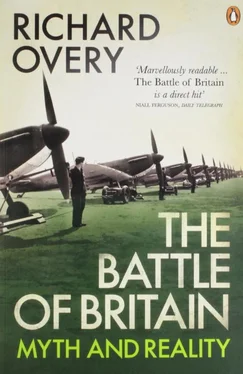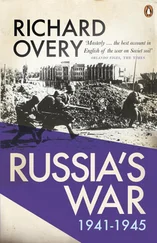That same day, 28 May, Churchill was asked to approve pre-invasion preparations to ship Britain’s national treasures and gold to safe keeping abroad, including the Coronation Chair. He scribbled on the letter: ‘I believe we shall make them rue the day they try to invade our island. No such discussion can be permitted.’ 10The public mood was in the main with Churchill. A Home Intelligence report on 28 May revealed a popular conviction that ‘we shall pull through in the end’; three days later the people were reportedly more bullish, displaying a ‘general calmness’ and a ‘new feeling of determination’. 11But the decision taken in late May to fight on did not still all appetite for peace. A scattered population of defeatists, ‘realists’ and fellow-travellers endorsed the idea of exploring the prospects for peace with Hitler. They included Basil Liddell Hart, the military strategist; ‘RAB’ Butler at the Foreign Office; the pacifist socialist Charles Roden Buxton; and an unlikely coupling of British fascists and communists, temporarily bound together by the German-Soviet Pact of August 1939. The peace party’s most powerful spokesman was David Lloyd George, Britain’s outstanding war leader in 1916–18. His interest in peace stemmed from an inexplicably myopic respect for Hitler (he once described him as ‘the George Washington of Germany’, and in autumn 1940 numbered Hitler ‘among the greatest leaders of men in history’). Around thirty MPs joined in urging Lloyd George to campaign for peace in June 1940. Churchill thought about inviting him to join the Cabinet, but was encouraged by colleagues to think again. Lloyd George did not want to join anyway. He preferred to wait ‘until Winston is bust’, and waited in vain. 12
A great deal has been made of the so-called ‘peace party’, but its historical significance has been vastly inflated. Even Churchill was forced by circumstances to admit the possibility of defeat, though not surrender. Halifax was never in favour of peace at any price, certainly not at a price that would compromise British sovereignty in any substantial way, and he soon came round to accept that continued belligerency was the only honourable course. The other appeasers were marginalized or ignored. There was still much evidence of the British stiff upper-lip. When the Chiefs of Staff Committee discussed the instructions to be issued to the civil population to prepare for invasion, it was decided that they should be asked to behave ‘cheerfully and bravely’. Women, the chiefs of staff declared, were of ‘best service’ keeping ‘their own home running for their own menfolk’. 13On 30 May Churchill was shown a minute circulated to officials at the Foreign Office by the Permanent Secretary, Sir Alexander Cadogan, asking them not to reveal a glimmer of the appalling news from France: ‘We may in our own minds face very unpleasant truths and possibilities, but we have no right to let our friends or acquaintances assume from a chance word or an attitude of depression the anxiety we may feel.’ At the foot Churchill added the single word ‘Good’. 14
None the less, the decision to fight on brought weeks of fearfulness and uncertainty. Popular opinion fluctuated with the final crisis in France, but on 17 June, when news came of French surrender, Home Intelligence found only a mood of ‘gloomy apprehension’, more prominent among ‘the middle classes and the women’. 15There were mutterings picked up by Home Intelligence agents, stationed surreptitiously in bars and cafés, that a Hitler victory might not be such a bad thing. ‘Many workers say about Hitler,’ ran a report in mid-June, ‘ “He won’t hurt us: it’s the bosses he’s after: we’ll probably be better off when he comes.”’ Later reports suggested that the lower middle classes were also vulnerable: ‘The whiter the collar, the less the assurance.’ But in general, morale reports showed a strengthening resolve across the weeks before the air battles began. While only 50 per cent of respondents in one opinion poll regarded fighting alone with confidence, 75 per cent of those asked wanted war to continue (84 per cent of men, but only 65 per cent of women). 16
In the prevailing atmosphere there were daily scares about invasion or sabotage or espionage. These fears began right at the top. At the end of May the War Office, responding to intelligence information, began to prepare for a possible German invasion of Ireland. Thanks to the existence of the IRA, described by the Joint Intelligence Committee as ‘a very formidable body of revolutionists’, whose members were ‘violently anti-British and many of them pro-German’, Ireland was regarded as prime fifth column territory. The three services were warned to expect ‘a German descent upon Eire, in conjunction with subservient members of the IRA’. Though the War Cabinet took the sensible view that southern England remained the key danger-spot, the possibility of diversionary action in Ireland, Scotland or Wales, where it was felt that the Germans could exploit local ethnic grievances along ‘Sudeten’ lines, remained very much alive. 17
There were also fears of subversion closer to home. The Air Ministry observed in its ‘Plans for Invasion’ in June that the 77,000 aliens living in Britain constituted a standing threat and should all be ‘deported to the other side of the Atlantic’. The Ministry wanted further evacuation from the cities stopped in order to prevent foreign spies from infiltrating the displaced populations. 18So anxious did the Ministry of Information become that in July 1940 a ‘Silent Column’ campaign was launched under the direction of the art historian Kenneth Clark, which aimed at stamping out gossip and rumour. Like most campaigns mounted by the Ministry that year, it proved to be a disaster. Within days there was widespread public hostility to efforts to stifle discussion, and outrage at the few prosecutions. The popular view was that people ought to be able to police themselves. Two weeks after its launch, the ‘Silent Column’ was abandoned. Official unease persisted, however. As late as January 1941 the Policy Committee of the Information Ministry still bemoaned ‘the dangers of the attitude liable to be accepted by the very poor or the very rich that a German victory would not make very much difference’. 19
Such fears may seem quite unrealistic more than half a century later. Yet they reflect the evident reality that Britain was a country divided by geography and social class, riven by popular prejudices and a complex structure of snobbery. The British public did not speak with one voice; British society adjusted in a variety of ways to the prospect of fighting alone (this is perhaps the most enduring myth, sustained in simple disregard of the vital and substantial support of Canada, South Africa, Australia, New Zealand, India and the colonial empire). If Hitler had won in 1940, it is unrealistic to suppose that Germany would not have confronted in Britain the same unstable mix of active collaborators, silent bystanders and hostile partisans that characterized the populations of all the other states she occupied. Nevertheless, the predominant instinct in the summer of 1940 was to accept, hesitantly perhaps, fearfully certainly, that invasion might happen and that the British people should obstruct it. This was the spirit observed by the American reporter Virginia Cowles, who watched with mounting incredulity the moral revival of the population after the shock of Dunkirk and French defeat: ‘For the first time I understood what the maxim meant: “England never knows when she is beaten”… I was more than impressed. I was flabbergasted. I not only understood the maxim; I understood why Britain never had been beaten.’ 20
This was an attitude little appreciated in Berlin. The victory over France transformed the possibilities confronting Hitler, but because victory was so much swifter and more complete than the German side expected, little thought had been given to what might happen next. German leaders believed that Britain had been an unwilling belligerent in September 1939. With France defeated, there no longer appeared any reason for Britain to remain at war. A political settlement seemed likely. Joseph Goebbels, Hitler’s Minister of Propaganda, told his staff on 23 June that the Churchill government was doomed: ‘A compromise government will be formed. We are very close to the end of the war.’ 21The German army chief of staff, General Franz Halder, recorded in his war diary in July that Hitler favoured ‘political and diplomatic procedures’ to bring Britain to a settlement. The alternative of crossing the Channel Hitler regarded (rightly) as ‘Very hazardous’. ‘Invasion is to be undertaken,’ Halder wrote, ‘only if no other way is left to bring terms to Britain.’ In his opinion Britain was in a hopeless position: ‘The war is won by us. A reversal in the prospects of success is impossible.’ 22
Читать дальше












